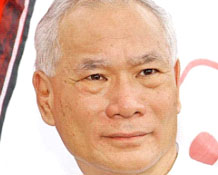(Trinidad Express) The CLICO board has collapsed.
In a major slap to Central Bank Governor Jwala Rambarran, and in a most unwelcome development for the Government, two directors of the CLICO board, Jagdeesh Siewrattan and Denyse Mehta, have resigned on principle, citing the Central Bank Governor’s “unfair, unjust and insensitive” dismissal of ex-chairman Gerald Yetming and managing director Carolyn John.

The board, which is supposed to consist of five directors, now has only Krishna Bodhai and Wendy Ho Sing, the new executive chairman. But with this fragmentation of the CLICO Board, created by the resignations, there is now no quorum.
Siewrattan’s letter of resignation, dated June 12, 2015, and Mehta’s letter, dated June 14, 2015, both copied to Minister of Finance Larry Howai, have come in the wake of the June 5 dismissal of Yetming and John, following the controversy over payments to former CLICO directors.
Both Siewrattan and Mehta were critical of the Central Bank’s handling of the situation and corroborated Yetming’s claim that the Central Bank knew and supported the decision of CLICO to pay the former directors and at no time indicated its opposition until after public controversy developed.
Mehta suggested the Central Bank’s behaviour was “unethical” because of its failure to acknowledge joint accountability in the matter. In standing in solidarity with Yetming and John, Siewrattan said if they were dismissed, then so should he.
In her letter, addressed to the Governor, Mehta, who was appointed on September 31, 2010, stated that it had become untenable to continue on the board in view of the “unfair, unjust and unprofessional treatment meted out to my fellow directors, Gerald Yetming and Carolyn John…by you, with great disrespect”.
In complaining about the manner in which Yetming, a former minister of finance, and John were treated, Mehta said: “In addition to them not being given the chance to defend themselves, they were falsely charged with ‘trumped-up’ allegations that they did not follow instructions regarding approval of payments by the Central Bank to residual STIP holders”.
Mehta stated that at the board meeting of April 29, 2015, an update on the payment plan for non-assenting STIP holders was provided. Given the “Clico Resolution” by the Central Bank, it was the duty of the managing director to execute this plan with the Central Bank officials.
“There was a clearly established protocol for operating as this was not the first payment plan to be executed. There was no objection by any director or from the Central Bank representative, Mr Neil Dingwall, at the board meeting about the plan. Neither was there any objection from Mr Dingwall when it was mentioned that related parties would not be treated differently, an opinion shared by you, Governor, on public television, where you stated that all creditors must be paid.”
Mehta said notwithstanding these statements, there was a clearly-defined and well-established payout process with the Central Bank, which involved senior officials such as Carl Hiralal, Nicole Chapman, Neil Dingwall and Denise Daniel.
“It is my understanding that all of these members participated with Ms John and Ms Hoyte from CLICO. I also know that payments were fully under way by May 13, 2015 and by the last meeting of June 3, 2015, the board was informed that 219 applications were already processed with no expressed concern raised by Neil Dingwall or the Central Bank,” the letter continued.
Mehta stated further that at a special board meeting of May 12, 2015, a letter from the Central Bank was presented where CLICO was directed not to pay Ms Gita Sakal, or any other defendants of the fraud on the public proceedings.
“Given this expressed statement, it is my knowledge that this direction is what was acted upon by Ms John and by extension members of the Central Bank. No other variation in the payment plan was presented to the Board to change our direction,” Mehta stated.
She added: “It is therefore against the principles of natural justice to suggest that the chairman or the MD acted unilaterally, especially as this was a joint process.





